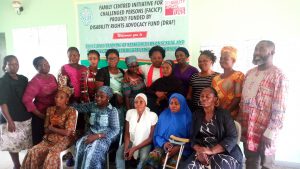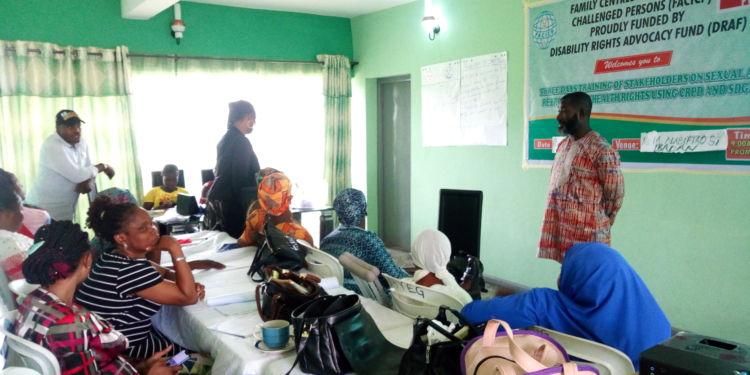Various women with disabilities across Ibadan, Oyo state have been trained on advocacy for Sexual and Reproductive Health Rights using the Convention on Rights of Persons with Disabilities, CRPD & Sustainable Development Goals, SDGs.
The three days training which was conducted by Family Centred Initiative for Challenged Persons, FACICP was sponsored by Disability Rights Advocacy Fund, DRAF and had in attendance women with disabilities from various clusters.
While speaking at the training program, Dr Adebukola Adebayo, FACICP’s Project Director explained that it is imperative for women with disabilities to have access to SRH because if they contract any sexually transmitted disease, it would affect every other phase of their lives.
Adebayo buttressed that women with disabilities are often excluded on SRH and said it’s high time women began to advocate for inclusive health care delivery.
Adebayo urged the women to take proactive measures to ensure the new administration in the state provides adequate and inclusive healthcare for persons with disabilities. He added that, “any health facility that doesn’t include persons with disabilities is a failure” and urged the women to stand up, speak up and make a change.
For her part, Ekaete Umoh, Exedcutive Director, FACICP spoke about the organization and its interest to ensure a better and conducive environment for persons with disabilities. Umoh spoke on the four models of disability which include; Charity, Medical, Social and Advocacy (human rights). She urged the participants not to subject themselves to charity or medical model, which according to her, are not the best for pwds.
Eno Uyebi, Programme Officer, FACICP urged the participants to equip their colleagues with information gathered at the training with the aim of empowering more women with disabilities. The third phase of the training will hold in Kano State after its completion in Akwa Ibom and Oyo States.



It is very important that women with disabilities have access to sexual and reproductive health services, they shouldn’t be segregated